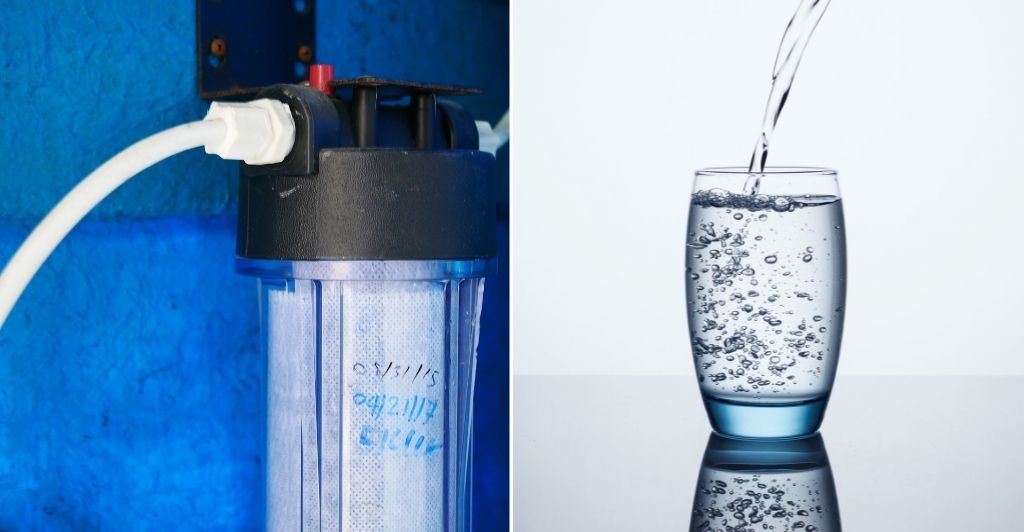If you’re looking to buy a water purifier for your home, you must be getting recommendations to invest in a water distillation system or a reverse osmosis water filtration system. If you don’t know about the differences between the two, we’re here to help you out with the details.
Reverse osmosis water filters are recommended when you want safe and clean water for drinking purposes. Water distillers are recommended when clean water is needed for doing experiments. Both these are common purification methods, and they have many differences that set them apart.
It is important to understand their differences before investing in one of these water purification systems. Here’s a detailed guide on reverse osmosis vs distilled water to help you make an informed decision.
Let’s get started…
- Purified Water: The Basics
- The Basic Difference Between Reverse Osmosis & Distillation
- What is Reverse Osmosis?
- What is Distillation?
- Is Reverse Osmosis Filtered Water Also Distilled?
- Uses of Reverse Osmosis vs Distilled Water
- Reverse Osmosis vs Distilled Water — Which is the Better Option for You?
- Final Thoughts
- FAQs
Purified Water: The Basics
Purified water is water that has been treated using processes such as reverse osmosis or water distillers. Scientifically speaking, purified water contains less than 10 PPM of total contaminants and dissolved solids.
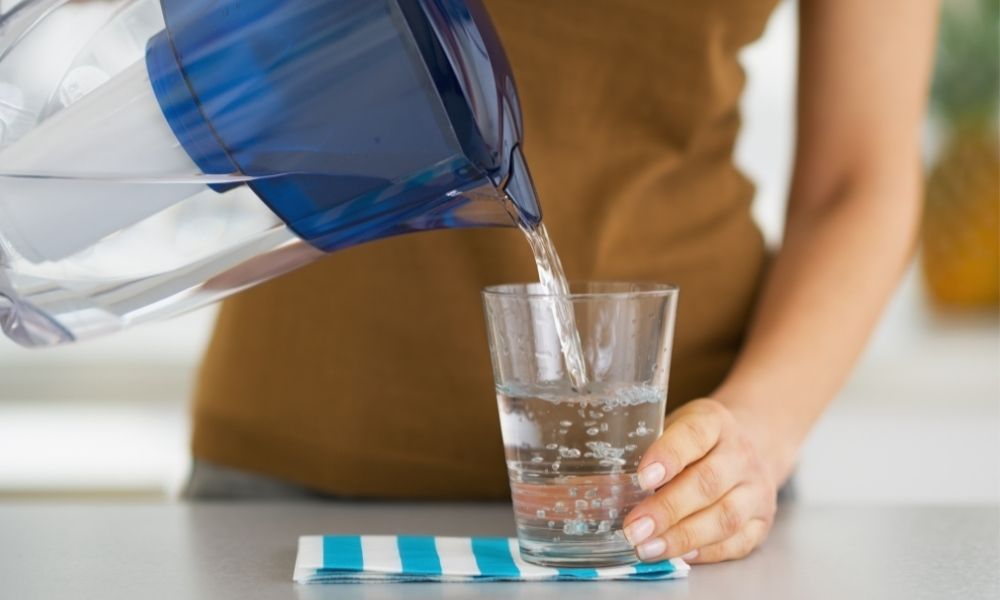
Hence, 99% of the unwanted components need to be removed from the water to term it purified water. Water purification eliminates components such as metals, chemicals, bacteria, minerals, and protozoa, among others, from the water.
The Basic Difference Between Reverse Osmosis & Distillation
Reverse osmosis is a process where water is forced to pass through various membranes to filter it with utmost effectiveness. Reverse osmosis water filters are mostly installed in homes to get a freshwater supply.
In the process of water distillation, the water is boiled to capture condensation, and then it is kept aside to condense into water. After the distillation process is completed, all the impurities get separated, and the result is purer water.
It would help if you kept in mind that distillation does not remove hazardous chemicals, bacteria, unwanted minerals, and microbes from tap water.
Although both these processes purify water, reverse osmosis is a recommended and preferred purifying system for residential and consumption purposes.
What is Reverse Osmosis?
Reverse osmosis water filtration systems are commonly used in households to get clean drinking water. Apart from that, RO filters are also used in desalination plants for turning seawater into freshwater.
Moreover, these filtration systems are also used for producing pharmaceuticals, beverages, and food and in industrial agriculture to control the pH levels of the soil.
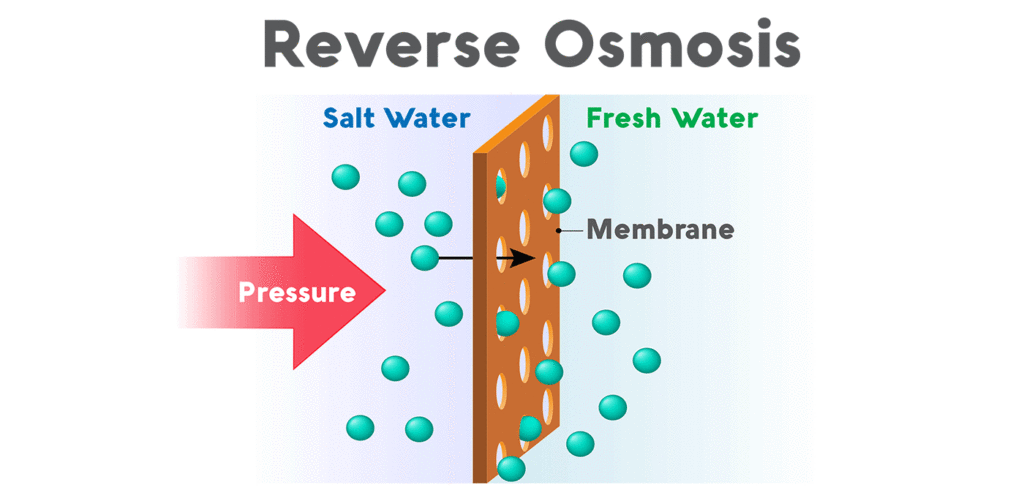
RO filtration systems have many fine membranes that force the water to pass through them to filter out all the dissolved solids. These systems usually have 4-6 membranes with tiny pores.
These membranes allow pure water to pass through, leaving behind all the dissolved solids, impurities, and contaminants. The filters ensure the utmost effectiveness and efficiency as they remove up to 99% of the impurities.
When we talk about RO filters that are made for residential purposes, they usually come equipped with pre and post-filters to increase the system’s accuracy. These filters also increase the lifespan of the water filtration system.
While the pre-filter eliminates extra amounts of sediment in the water, the post-filter uses granulated activated carbon to remove any leftover contaminants. These contaminants include synthetic organic chemicals, disinfection byproducts, VOCs, chlorine, and other components that deteriorate water quality.
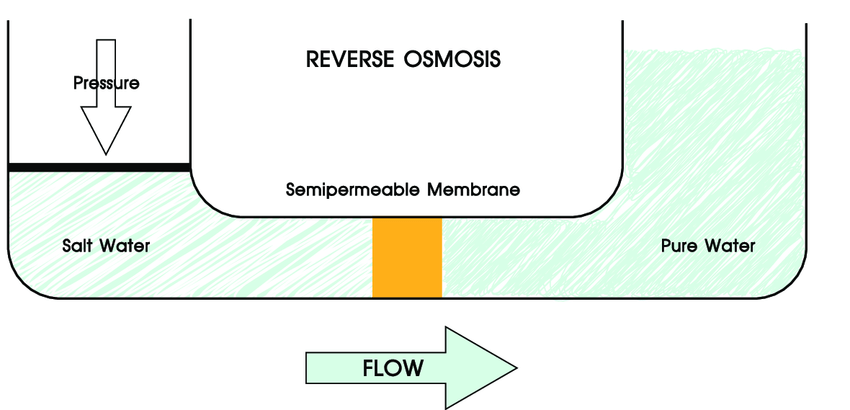
To add to it, many reverse osmosis water filters also come with an additional mineral filter that adds all the essential nutrients and minerals back into the water. This makes the water healthier and more refreshing. Moreover, these minerals improve the taste of water.
Before investing in a reverse osmosis water filter, a few things to keep in mind are that these filters efficiently remove most of the contaminants, but they are not 100% effective.
Additionally, these filters also waste a certain amount of water that goes down the drain along with all the dissolved solids while providing you with purified water.
Lastly, RO water filters also require regular maintenance to ensure that their filters work efficiently and the filter effectively works for years to come.
What is Distillation?
Distillation is a water purifying process wherein water is boiled till it turns into steam. Then, while the impurities settle down, the steam gets collected in a condenser which cools it down and turns the steam back into the water.
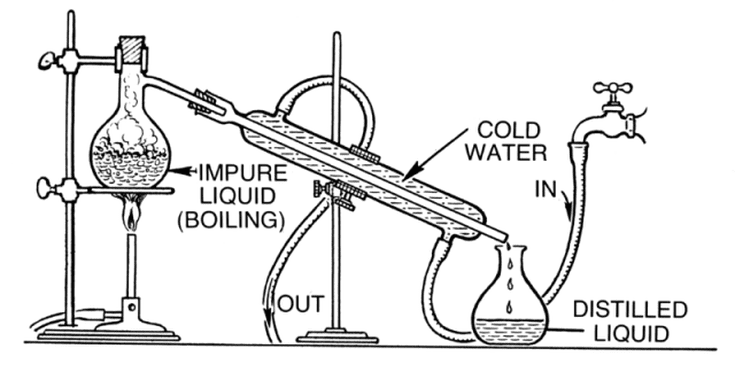
The last step of this process includes making the water droplets flow through a carbon filter. This filter removes remaining impurities from the water, giving you purified water in the end.
To put it in simple words, water distillers turn liquid into a gas and then turn it back into liquid to remove unwanted particles from the water. Still is a piece of essential equipment required for the distillation process.
Distillation effectively eliminates salts and minerals from water. Any dissolved solids that cause the water to become hard are also removed using distillation. Moreover, water distillers also neutralize microbes like Legionella and Giardia from water.
However, distillation alone cannot remove chemicals, and you’ll need to run the water through an additional filter to make the water completely clean.
When it comes to household purposes, distilled water is usually used in steam mops and electric irons. It is also used in certain batteries and motors. If you want to get a water distiller for your home, you should buy a countertop distiller to purify the water effectively.
Is Reverse Osmosis Filtered Water Also Distilled?
Now that you know the difference between a distiller and a reverse osmosis water filter, you must be thinking that reverse osmosis water is also distilled. So, is that the case? The answer is no.
Both of these methods have a few similarities, such as they provide safe, fresh drinking water. In most cases, purified water from both these methods tastes flat because of the elimination of minerals.

While both of these methods eliminate impurities and unwanted particles from water, distillation fails to remove volatile chemicals like chloramines effectively when compared to reverse osmosis.
If you’re looking for a short-term solution, you can do it with distillation. However, investing in a good reverse osmosis water filtration system proves to be a smarter long-term choice for getting a safe, pure, clean, and fresh drinking water supply at home.
Uses of Reverse Osmosis vs Distilled Water
If you’re still confused about the uses of reverse osmosis and distilled water, you should ask yourself if you want to use it for commercial purposes or household uses.
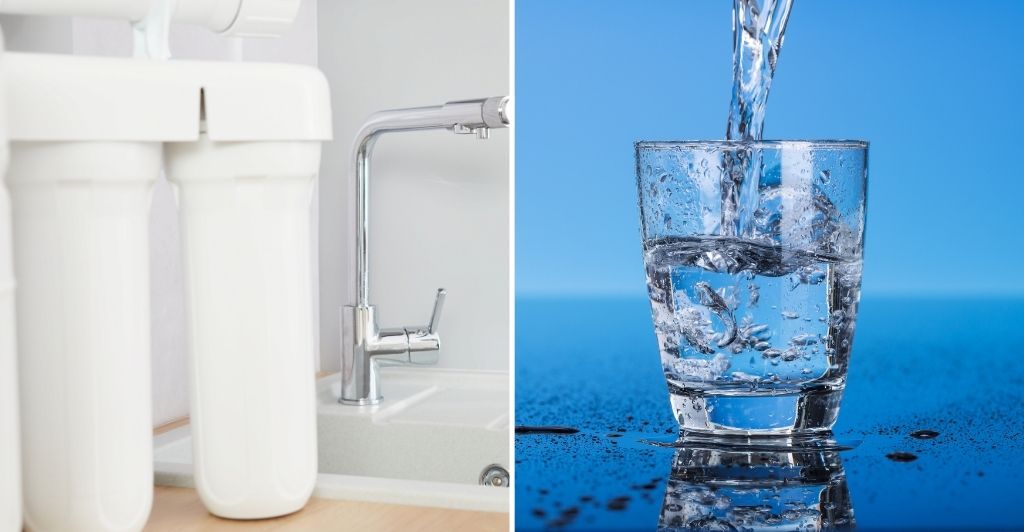
Distilled water is usually used for commercial applications. Basically, it is used where you don’t want minerals to become an obstacle. This is because minerals can affect appliances.
On the other hand, reverse osmosis water filters are used for drinking and household uses.
Reverse Osmosis vs Distilled Water — Which is the Better Option for You?
Considering most people looking to buy a water purifier want to invest in it to improve the water quality for better health, it becomes essential to compare these two purifiers and pick the right one for yourself.
Both of these methods of purification remove vital minerals from water. Still, many reverse osmosis systems add them back into the water as they come equipped with an additional mineral filter. This feature gives reverse osmosis water filtration systems an upper hand over water distillers.
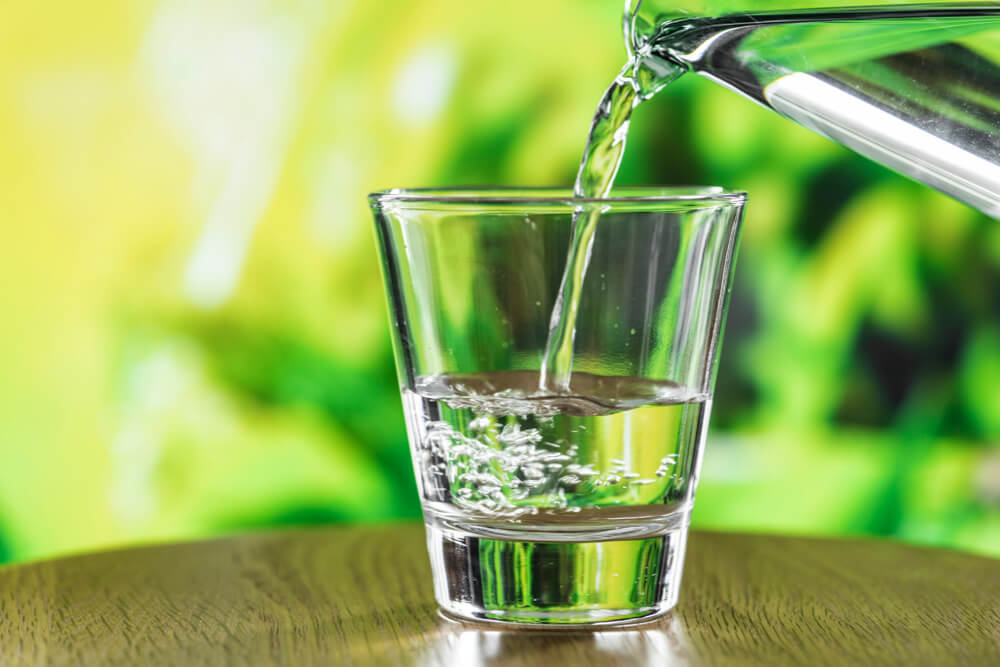
Drinking mineral-free water won’t do you much harm, as your body will get these minerals from other healthy food items that you consume in a day. Hence, if you’re drinking water that doesn’t have minerals, you should ensure that you eat a nutrition-rich diet. This ensures that your body is not deficient in any essential minerals and nutrients required for its functioning.
If you get a reverse osmosis filter, you won’t have to worry about consuming extra minerals through your diet, as the water will be mineral-rich. Moreover, RO water smells and tastes good as well. Keeping these factors in mind, reverse osmosis becomes a better option.
Final Thoughts
In this guide, we discussed reverse osmosis and distillation in detail. Both reverse osmosis water filtration systems and distillation are water purification processes, but they are not the same. Distillation purifies tap water, but reverse osmosis water is safer and cleaner for consumption.
Reverse osmosis forces the water to pass through various membranes to eliminate chemicals and unwanted components.
On the other hand, distillation is an energy-intensive process involving the condensation of water to purify it.
The type of process you choose depends upon your personal requirements and preferences. We believe reverse osmosis is a better option than the two because it gives better tasting and cleaner drinking water.
FAQs
Is distilled and reverse osmosis water the same?
No. While distilled water is a purer form of tap water, it still contains harmful chemicals. On the other hand, reverse osmosis water doesn’t have any contaminants and chemicals present in it.
Is distilled water good for health?
It is safe to drink distilled water, as it won’t harm you, but its taste might seem odd to you. You should also note that essential minerals and nutrients get evaporated in distillation.
Is distillation the same as boiling water?
No. Boiling water and distillation are both different processes, giving different results.
How can I make distilled water?
Specific equipment is required to go through the process of distillation. In this process, the water is boiled, then condensed, and then kept aside to cool down and turn back into its original form.
What are the benefits of distilled water?
Distilled water is mostly used by people who require mineral-free pure water for experiments or with equipment and appliances.
